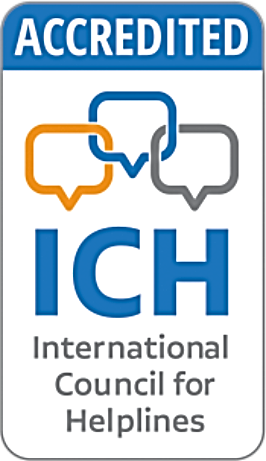
An addict struggling with dangerous temptations. A young adult overwhelmed by a controlling relationship. A suicide attempt survivor working to overcome their gambling habit.
Each needs help with a significant problem. None have someone in their lives they can trust to listen.
So all three pick up the phone to share their troubles with a stranger.
These stories are among the dozens of calls received each month by the CONTACT Listening Line, a free phone service that organizers are revamping to tackle one of modern society’s greatest health threats: loneliness.
“People feel like they’re not connected to anyone,” said Eleanor Letcher, executive director for CONTACT of Mercer County, the group behind the phone line. “There has to be a place where someone can call and just talk to someone in confidence about whatever is bothering them.”
“The mental health crisis is consistently top of people’s minds,” said U.S. Congressman Andy Kim, who represents parts of Mercer County. “We have to recognize there are significant gaps in our country that we need to address to get people the help they need.”
That’s where the listening line comes in.
CONTACT’s service first started during the hotline frenzy of the mid-’70s, when two local pastors organized volunteers to help strangers with their problems. Typical callers in those early days were feeling overwhelmed by family arguments, raising children and dealing with their in-laws, said Letcher, who has been involved with the program since its inception.
The line evolved over the decades with the needs of its callers, eventually focusing more on crisis resolution and suicide prevention. In 2022, Contact’s hotline joined the nationwide 988 program to assist people in suicidal crisis and began responding to 988 calls, texts and chats.
Its original phone line needed a new mission.
Organizers decided to revamp it with a new number (609-737-3300), consistent hours (11 a.m. to 3 p.m. on weekdays) and an emphasis on combating the underlying theme of so many calls they receive. Some people feel so lonely they think “nobody would care if they lived or they died,” Letcher said.
Depression. Hopelessness. Suicidal thoughts. A heightened likelihood of heart disease and dementia. The staggering toll of loneliness increases the risk of premature death by more than 60% — about as dangerous as smoking up to 15 cigarettes a day — Murthy said last year.

An addict struggling with dangerous temptations. A young adult overwhelmed by a controlling relationship. A suicide attempt survivor working to overcome their gambling habit.
Each needs help with a significant problem. None have someone in their lives they can trust to listen.
So all three pick up the phone to share their troubles with a stranger.
These stories are among the dozens of calls received each month by the CONTACT Listening Line, a free phone service that organizers are revamping to tackle one of modern society’s greatest health threats: loneliness.
“People feel like they’re not connected to anyone,” said Eleanor Letcher, executive director for CONTACT of Mercer County, the group behind the phone line. “There has to be a place where someone can call and just talk to someone in confidence about whatever is bothering them.”
“The mental health crisis is consistently top of people’s minds,” said U.S. Congressman Andy Kim, who represents parts of Mercer County. “We have to recognize there are significant gaps in our country that we need to address to get people the help they need.”
That’s where the listening line comes in.
CONTACT’s service first started during the hotline frenzy of the mid-’70s, when two local pastors organized volunteers to help strangers with their problems. Typical callers in those early days were feeling overwhelmed by family arguments, raising children and dealing with their in-laws, said Letcher, who has been involved with the program since its inception.
The line evolved over the decades with the needs of its callers, eventually focusing more on crisis resolution and suicide prevention. In 2022, Contact’s hotline joined the nationwide 988 program to assist people in suicidal crisis and began responding to 988 calls, texts and chats.
Its original phone line needed a new mission.
Organizers decided to revamp it with a new number (609-737-3300), consistent hours (11 a.m. to 3 p.m. on weekdays) and an emphasis on combating the underlying theme of so many calls they receive. Some people feel so lonely they think “nobody would care if they lived or they died,” Letcher said.
Depression. Hopelessness. Suicidal thoughts. A heightened likelihood of heart disease and dementia. The staggering toll of loneliness increases the risk of premature death by more than 60% — about as dangerous as smoking up to 15 cigarettes a day — Murthy said last year.








